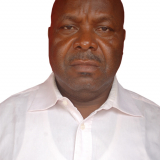Abstract
The need for a policy push toward universal health coverage (UHC) as a measure designed to ensure that all people have access to essential health services without enduring financial hardship. Hence, the need to investigate the effects of health system resilience and access to health insurance on households’ health care costs among different income groups in Nigeria. Using the World Bank Financial Inclusion Survey of 2020, known as the Global Findex database, which provides in-depth data on households’ financial resilience to health shocks, multinomial logistic regression estimation techniques and descriptive statistics with Stata 13 software were used for the analysis. Household financial health indicators (Q6081_) (which are a proactive proxy to health system resilience and health insurance) increase the relative risk ratio of medium-income group health care spending (Q6076_) compared to low-income and high-income groups by 18.52811 at 5% significance, given a p-value of 0.000 is less than 0.05. The negative effect of health system resilience on health costs highlights a significant danger to health sector sustainability in Nigeria. This has huge implications for achieving universal health goals, especially in Nigeria. Therefore, this study provided the opportunity to reshape health financing measures in a way that should provide equal chances for health access across locations and regions as it points to factors of inequalities, identity crisis, and marginalization crisis in Nigeria. The need for more robust regulators is necessary to counter the rising private health financing across different income groups in Nigeria. Policy direction should focus on first-level health insurance to a certain age level not limited to location, region, or religion as a way of mitigating health care costs as well as building a more pragmatic national identity considering the level of depravity in Nigeria.
